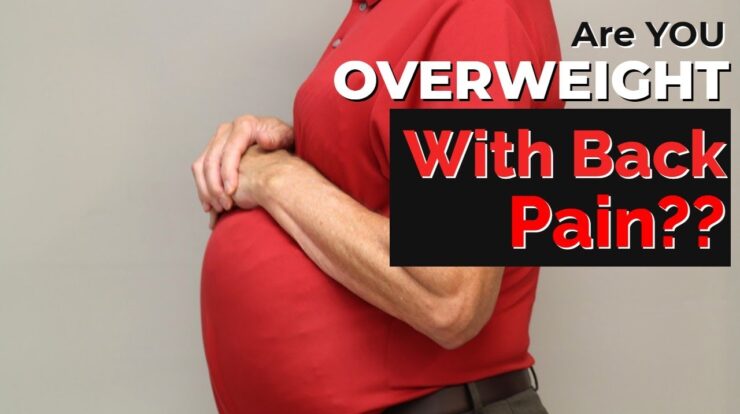
How to cure gum disease without a dentist – Gum disease is a common problem, but it doesn’t have to be a pain in the neck. With a few simple steps, you can cure gum disease without ever stepping foot in a dentist’s office. In this guide, we’ll cover everything you need to know about gum disease, from the causes to the cures.
So sit back, relax, and get ready to say goodbye to gum disease for good!
Gum disease is caused by a buildup of bacteria in the mouth. This bacteria can damage the gums and bone, leading to pain, swelling, and bleeding. If left untreated, gum disease can lead to tooth loss. The good news is that gum disease is preventable and treatable.
With proper oral hygiene and regular dental checkups, you can keep your gums healthy and strong.
Identify Common Causes of Gum Disease: How To Cure Gum Disease Without A Dentist

Gum disease, also known as periodontal disease, is a common oral health issue that can lead to serious consequences if left untreated. Understanding the causes of gum disease is crucial for effective prevention and treatment.
Poor Oral Hygiene, How to cure gum disease without a dentist
Poor oral hygiene is the primary cause of gum disease. When you do not brush and floss your teeth regularly, plaque, a sticky film of bacteria, accumulates on your teeth and gums. Plaque releases toxins that irritate the gums, causing inflammation and bleeding.
If plaque is not removed, it can harden into tartar, which further irritates the gums and can lead to gum recession and bone loss.
Plaque Buildup
Plaque is a biofilm that forms on the teeth and gums. It is composed of bacteria, food particles, and saliva. Plaque can irritate the gums and cause them to become inflamed and bleed. If plaque is not removed, it can harden into tartar, which is more difficult to remove and can lead to gum disease.
Smoking
Smoking is a major risk factor for gum disease. Chemicals in cigarettes damage the gums and make them more susceptible to infection. Smoking also reduces the blood flow to the gums, which can slow down healing and make it more difficult to fight off infection.
Hormonal Changes
Hormonal changes, such as those that occur during pregnancy or menopause, can make the gums more sensitive and prone to inflammation. This is because hormones can increase blood flow to the gums, which can make them more susceptible to irritation.
Certain Medications
Certain medications, such as steroids and chemotherapy drugs, can cause gum disease as a side effect. These medications can suppress the immune system, making it more difficult for the body to fight off infection. They can also reduce saliva production, which can lead to dry mouth and make the gums more susceptible to irritation.
Genetic Factors
Some people are more genetically predisposed to gum disease than others. This is because certain genes can affect the way the body responds to bacteria in the mouth. People with a family history of gum disease are more likely to develop the condition themselves.
Natural Remedies for Gum Disease
Natural remedies offer a holistic approach to managing gum disease by harnessing the antimicrobial and anti-inflammatory properties of various ingredients. While these remedies may not replace professional dental care, they can provide additional support and alleviate symptoms.
Homemade Mouthwashes
Mouthwashes containing natural ingredients can help reduce inflammation and eliminate bacteria. Here are some popular options:
- Saltwater rinse:Mix 1/2 teaspoon of salt in 8 ounces of warm water. Rinse for 30 seconds, twice a day.
- Baking soda rinse:Dissolve 1 teaspoon of baking soda in 8 ounces of warm water. Rinse for 30 seconds, twice a day.
- Tea tree oil mouthwash:Add 2-3 drops of tea tree oil to 8 ounces of water. Rinse for 30 seconds, once or twice a day.
Rinses and Pastes
Rinses and pastes can directly target the affected areas and provide sustained relief:
- Aloe vera rinse:Extract the gel from an aloe vera leaf and mix it with equal parts water. Rinse for 30 seconds, twice a day.
- Clove oil rinse:Dilute 1-2 drops of clove oil in 8 ounces of water. Rinse for 30 seconds, once a day.
- Baking soda paste:Create a paste by mixing baking soda with a small amount of water. Apply it to the affected areas for 5 minutes, then rinse.
Potential Benefits and Limitations
Natural remedies offer several benefits, including their availability, affordability, and potential to reduce inflammation and bacteria. However, it’s important to note that they are not a substitute for professional dental care. Some limitations include:
- Effectiveness:The effectiveness of natural remedies may vary depending on the severity of the gum disease.
- Taste:Some remedies may have an unpleasant taste, making them difficult to use regularly.
- Interactions:Natural remedies can interact with certain medications, so it’s crucial to consult with a healthcare professional before use.
Lifestyle Modifications for Gum Disease Prevention

Maintaining optimal oral health involves adopting a comprehensive approach that encompasses regular dental checkups, proper oral hygiene practices, and healthy lifestyle choices. This multifaceted strategy plays a crucial role in preventing and managing gum disease, safeguarding the integrity of your teeth and gums.
Regular Brushing and Flossing
Regular brushing and flossing are the cornerstones of effective oral hygiene. Brushing your teeth twice daily with a soft-bristled toothbrush and fluoride toothpaste helps remove plaque and bacteria from the surfaces of your teeth. Flossing once a day is equally important, as it removes debris and bacteria from between your teeth, where your toothbrush cannot reach.
Proper brushing and flossing techniques are essential to maximize their effectiveness.
Balanced Diet
A balanced diet rich in vitamins and minerals is not only essential for overall health but also contributes to gum health. Vitamin C, found in citrus fruits and leafy green vegetables, is crucial for collagen production, a protein that provides structure and support to your gums.
Calcium, present in dairy products, leafy green vegetables, and fortified foods, strengthens tooth enamel and supports healthy bone structure. Additionally, limiting sugary foods and beverages helps prevent the growth of bacteria that contribute to gum disease.
Stress Reduction and Sleep
Stress and sleep deprivation can have detrimental effects on your oral health. Chronic stress can weaken your immune system, making you more susceptible to gum disease. Adequate sleep is essential for tissue repair and regeneration, including in the gums. Aim for seven to nine hours of quality sleep each night to support optimal oral health.
Alternative Therapies for Gum Disease
In addition to conventional treatments, alternative therapies may provide additional support for managing gum disease. However, it’s crucial to note that these therapies should not replace professional dental care, and consulting with a healthcare professional before use is essential.
Oil Pulling
Oil pulling, an ancient Ayurvedic practice, involves swishing a tablespoon of oil (such as coconut or sesame oil) in the mouth for 10-15 minutes daily. Proponents believe it helps remove bacteria and toxins, reducing inflammation and improving gum health. While some studies suggest potential benefits, more research is needed to establish its effectiveness.
Acupuncture
Acupuncture, a traditional Chinese medicine technique, involves inserting thin needles into specific points on the body. It is believed to promote circulation, reduce inflammation, and enhance the body’s natural healing abilities. Some studies have shown acupuncture may improve gum health by reducing bleeding and inflammation.
Herbal Supplements
Certain herbal supplements, such as turmeric, green tea extract, and aloe vera, have antibacterial and anti-inflammatory properties. They may be incorporated into oral rinses or supplements to support gum health. However, it’s important to note that herbal supplements can interact with medications, so consulting with a healthcare professional is crucial.
Importance of Regular Dental Checkups
Regular dental checkups are crucial for the early detection and treatment of gum disease. Professional cleanings remove plaque and tartar buildup, which can cause inflammation and damage to the gums. Scaling and root planing procedures involve removing bacteria and tartar from below the gum line, helping to reduce inflammation and prevent further damage.
If you’re looking for ways to cure gum disease without a dentist, there are a few things you can do. One option is to visit Maricopa Mecconline for more information and resources. They offer a variety of resources on dental health, including tips on how to prevent and treat gum disease.
Another option is to try some home remedies, such as rinsing your mouth with salt water or applying a tea tree oil solution to your gums. These remedies may help to reduce inflammation and pain, and they may also help to kill bacteria that cause gum disease.
Addressing Underlying Medical Conditions
Underlying medical conditions, such as diabetes, can contribute to gum disease. Regular dental checkups allow dentists to assess overall oral health and identify any underlying medical issues that may require attention. Addressing these conditions can help improve gum health and prevent further complications.
Closing Notes

If you’re looking for a way to cure gum disease without a dentist, there are a few things you can do. First, start by improving your oral hygiene. Brush your teeth twice a day with a fluoride toothpaste, and floss once a day.
You should also avoid sugary foods and drinks, as these can feed the bacteria that cause gum disease. In addition to good oral hygiene, there are a few natural remedies that can help to cure gum disease. These remedies include:
- Salt water rinses
- Baking soda rinses
- Tea tree oil rinses
- Oil pulling
These remedies can help to reduce inflammation and kill bacteria, which can help to cure gum disease. However, it’s important to note that these remedies are not a substitute for regular dental care. If you have gum disease, it’s important to see a dentist to get proper treatment.
Quick FAQs
Can I cure gum disease without a dentist?
Yes, you can cure gum disease without a dentist, but it’s important to note that this is not a substitute for regular dental care. If you have gum disease, it’s important to see a dentist to get proper treatment.
What are some natural remedies for gum disease?
There are a few natural remedies that can help to cure gum disease, including salt water rinses, baking soda rinses, tea tree oil rinses, and oil pulling.
How can I prevent gum disease?
You can prevent gum disease by practicing good oral hygiene, including brushing your teeth twice a day with a fluoride toothpaste and flossing once a day. You should also avoid sugary foods and drinks, as these can feed the bacteria that cause gum disease.





